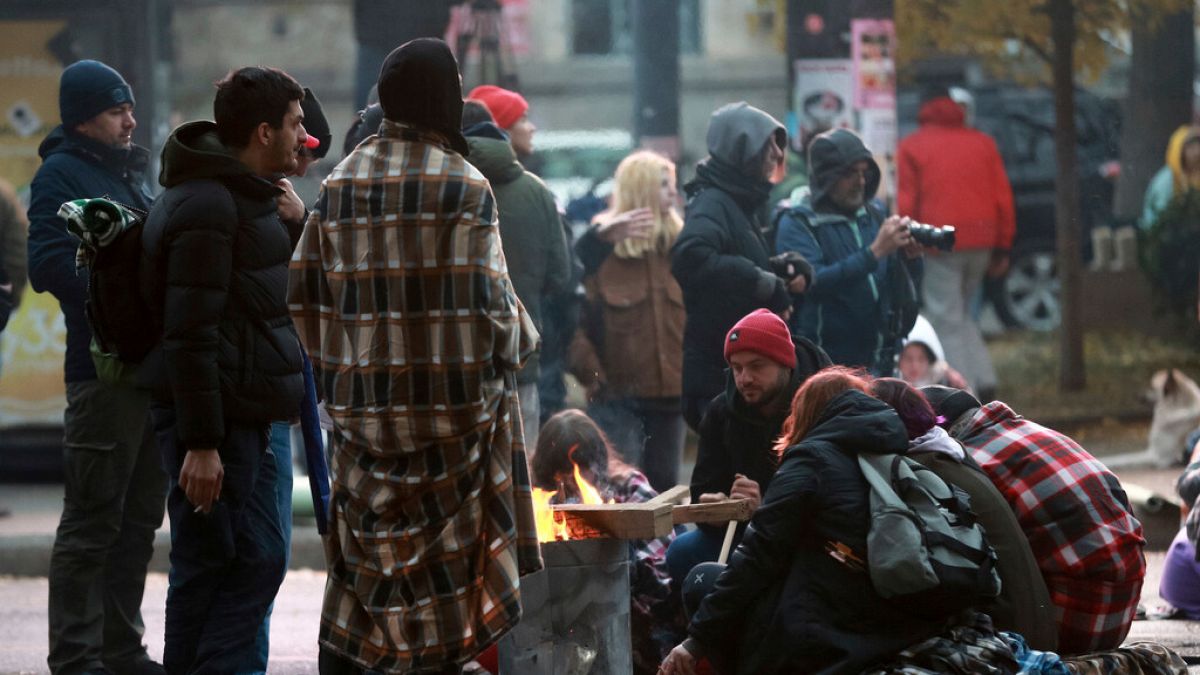COP29: ‘Cut the theatrics’ over finance talks, UN climate chief warns

The whole COP climate process could stall or go into reverse if governments refuse to compromise with less than a week of negotiations left.
Governments must hurry to clear uncontentious points of disagreement and make space to conclude a deal on financing the energy transition in developing countries, the head of the UN body that oversees global climate talks has urged.
“Bluffing, brinksmanship, and pre-meditated playbooks burn up precious time and run down the goodwill needed for an ambitious package,” UN climate chief Simon Stiell told the opening plenary session of the second week of COP29 this morning.
His remarks came as ministers gathered in the Azerbaijani capital to move talks to the political level after week one ended in an apparent stalemate.
The whole COP climate process could stall or go into reverse if governments “dig in and refuse to move on one issue, until others move elsewhere” with just five days of scheduled negotiations left, Stiell warned.
“This is a recipe for going literally nowhere. And could set global climate efforts back at a time when we simply must be moving forward,” he said, calling on negotiators to “cut the theatrics”.
‘With affluence comes responsibility’
The European Union made clear ahead of the COP that it wants to see countries like China and some Gulf states, stepping up to the plate. Their economies have boomed since the climate talks in the 1990s and China is now the world’s biggest annual greenhouse gas emitter.
“Public finance should remain at the core of the NCQG,” the EU’s lead negotiator said, a reference to the ‘new collective quantified goal’ for climate finance that negotiators are supposed to agree by the end of the week, asserting that the bloc has always paid more than its fair share of the global total.
“With affluence comes responsibility,” climate commissioner Wopke Hoekstra told reporters in Baku after the week’s first round of talks.
But the EU has apparently conceded that such countries may not make any binding commitments.
“A potential solution could be to…move into a space of voluntary contributions,” he said. “We would be welcoming and open to those countries who do take such a step – in the end, this is not about dogmatism.”
Asked if the EU position is now that all contributions could be voluntary – including from those wealthy countries currently bound to a combined $100 billion (€95 billion) a year financing goal – he said only that the EU would “continue to stick with [its] commitments.”
The voluntary system would allow states whose wealth now outstrips that of many EU members to contribute while continuing to identify as developing countries if they “find it difficult to leave that category officially”.
Even assuming a significant boost in finance provision, Hoekstra recognised that private sector investment would be essential, and the final package must include incentives,
“The reality is that there will never, ever be enough public money – from any source,” he added. “We are here to design a system that reflects these realities.”
‘Today we are not ready to talk about any numbers’
One way to mobilise private sector financing would be through carbon markets, the Dutch politician said. He pointed to the parallel efforts to develop a regulated system of transferable ‘carbon credits’.
The system, envisaged in the 2015 Paris Agreement, would allow wealthier countries to meet their climate action commitments in part by paying developing countries to undertake additional climate action on their behalf. This could be through reforestation, deploying renewable energy or other means.
Azerbaijan claimed a major breakthrough last week after brokering a backroom agreement on international standards for the planned carbon market. COP29 president Mukhtar Babayev called on the G20 group of wealthy countries, currently meeting in Brazil, to send a “positive signal of their commitment to addressing the climate crisis”.
The former oil executive, now ecology and natural resources minister, pointed to the wide range of propositions now on the table regarding the structure, contributors list and size of the planned financing package.
“I think these discussions will continue until the last day,” Babayev said. “Today we are not ready to talk about any numbers.”
World News || Latest News || U.S. News
Source link



